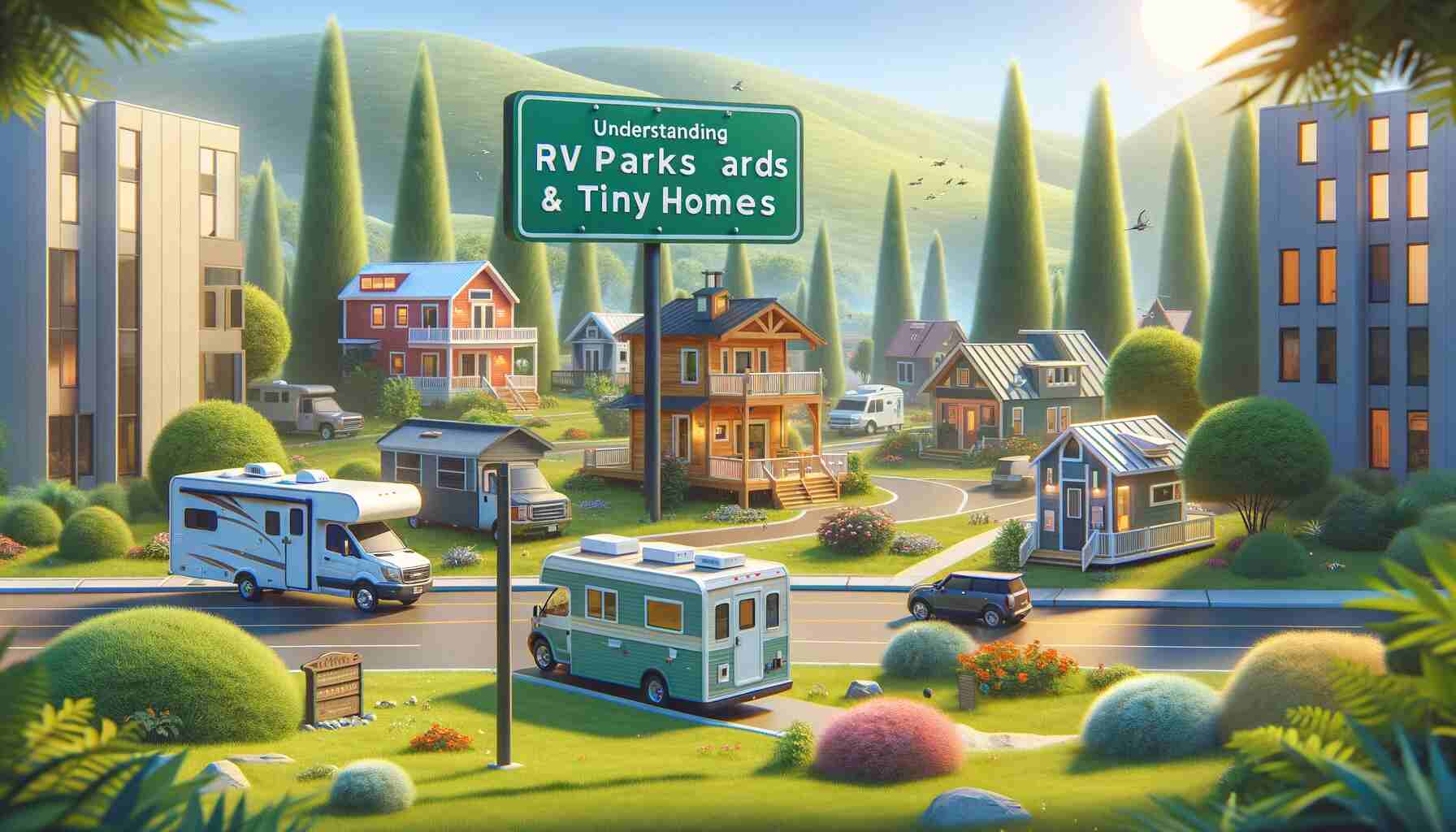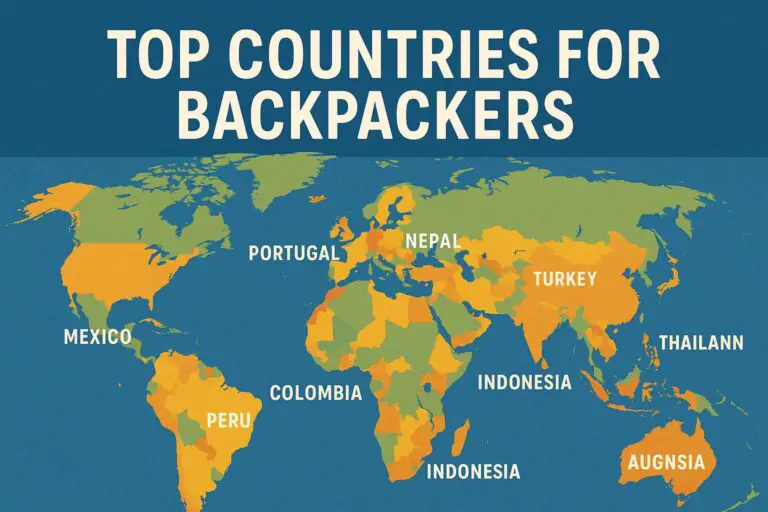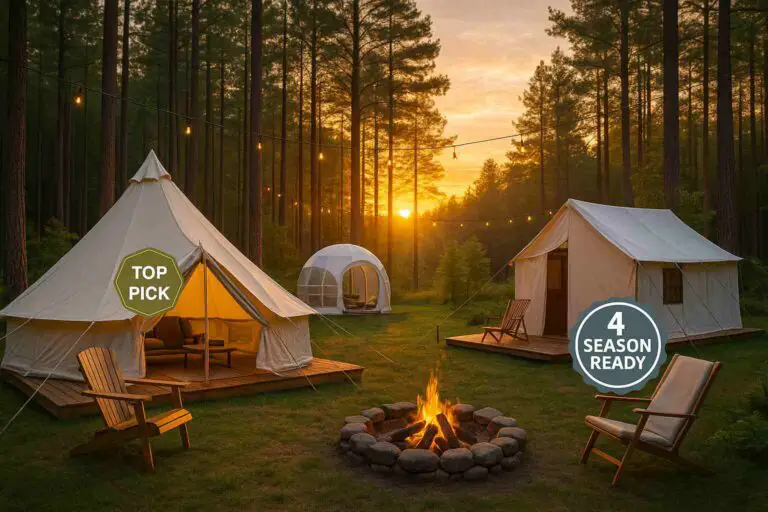In recent years, the concept of living in tiny homes has gained significant popularity. These small, efficient dwellings offer a minimalist and sustainable lifestyle. Meanwhile, RV (Recreational Vehicle) parks have been around for decades, providing a convenient and often picturesque place for RV enthusiasts to park and stay temporarily. But what happens when you combine the two? Can tiny homes be parked in RV parks?
Yes! If your tiny house has an RVIA certification, it’s legally allowed in RV parks and campgrounds, including national parks. However, specific criteria, such as size limits and local regulations, must be met. Some RV parks cater exclusively to tiny homes, ensuring a welcoming space for your compact dwelling.
Let’s dive deep into RV parks and tiny homes, Let’s explore their compatibility, conveniences, costs, and much more.
What are RV Parks?
RV parks, also known as campgrounds or trailer parks, are designated areas where people with recreational vehicles can park and stay for various durations, ranging from a night to several months. These parks offer a range of amenities and services, making them popular destinations for travelers and outdoor enthusiasts.
RV Park Amenities
- Electrical hookups
- Water hookups
- Sewer connections
- Restroom and shower facilities
- Laundry facilities
- Picnic areas
- Dump stations
- Campfire rings
- Wi-Fi access
- Recreation areas (playgrounds, pools, etc.)
RV parks are often located in scenic and convenient locations, catering to those seeking a blend of outdoor adventure and modern conveniences.
Tiny Homes vs. RVs
Before delving into the specifics of RV parks and tiny homes, it’s crucial to understand the fundamental differences between these two housing options.
Tiny Homes
- Typically stationary, often on a foundation or permanent trailer
- Usually larger than traditional RVs, with more permanent fixtures
- Designed for long-term, year-round living
- Greater customization and personalization options
- Often built with energy-efficient and sustainable materials
- Subject to local zoning and building codes
RVs (Recreational Vehicles)
- Designed for mobility, with wheels for travel
- Smaller and more compact, designed for short-term trips
- Typically equipped with basic amenities for camping and travel
- Limited customization options compared to tiny homes
- Regulated by RV industry standards
While both tiny homes and RVs offer compact living solutions, their purposes, designs, and regulatory frameworks differ significantly.
Can Tiny Homes Be Parked In RV Parks?
The question of whether tiny homes can be parked in RV parks is a common one, and the answer largely depends on the specific RV park’s policies and local regulations. In many cases, tiny homes can indeed be parked in RV parks, especially if they meet certain criteria:
Criteria for Parking Tiny Homes in RV Parks
- Size: The tiny home should adhere to the park’s size limitations, which often include length, width, and height restrictions.
- Mobility: Some RV parks require tiny homes to be on wheels or a chassis for easy relocation, resembling a trailer or RV.
- Compliance: The tiny home must meet the park’s standards for safety, utility connections, and aesthetics.
- Local Regulations: Local zoning and building codes may impact whether tiny homes are allowed in RV parks in a particular area.
It’s crucial to check with individual RV parks and local authorities to determine if a specific tiny home can be accommodated. Some RV parks even cater exclusively to tiny homes, providing a welcoming environment for these compact dwellings.
What Conveniences Do RV Parks Offer?
RV parks offer a variety of conveniences and amenities to make your stay comfortable and enjoyable. Let’s explore some of the common offerings:
On-Site Laundry
Most RV parks have laundry facilities equipped with washers and dryers. This is especially handy for those on extended trips or living in tiny homes without their laundry equipment.
Community
RV parks often foster a sense of community among residents and travelers. Social activities, gatherings, and shared amenities like communal fire pits encourage interaction and a sense of belonging.
Experience Nature
Many RV parks are nestled in picturesque natural settings, allowing residents to enjoy the beauty of the outdoors. Camping, hiking, and wildlife observation are often right at your doorstep.
Power and Wi-Fi
Electrical hookups are typically available at RV sites, allowing you to power your tiny home’s appliances and systems. Additionally, some RV parks offer Wi-Fi access for residents who need to stay connected.
Sewer Access
RV parks provide sewer connections, making waste disposal convenient. This is essential for tiny home residents, as they often have standard plumbing systems.
How Much Does It Cost To Use An RV Park?
The cost of using an RV park can vary widely depending on several factors, including location, duration of stay, amenities offered, and the type of accommodation (RV or tiny home). Here’s a breakdown of the typical costs:
RV Park Fees
- Daily Rates: Expect to pay between $20 and $80 per night for a basic RV site.
- Weekly Rates: Weekly rates often offer savings, ranging from $100 to $400 per week.
- Monthly Rates: For extended stays, monthly rates can range from $300 to $1,500 or more, depending on the location and amenities.
- Tiny Homes: Some RV parks charge higher fees for tiny home accommodation due to the increased space and utility requirements.
Keep in mind that premium RV parks with luxurious amenities and prime locations may command higher fees.
Considerations for Tiny Homes and RVs
When choosing between a tiny home and an RV, there are several essential factors to consider. These considerations can significantly impact your lifestyle and overall satisfaction with your chosen dwelling.
1. Mobility
RVs are designed for mobility, allowing you to travel and explore different locations easily. Tiny homes are often more stationary, so if you have a strong desire for mobility, an RV may be a better choice.
2. Size
Tiny homes generally offer more space and storage compared to RVs, making them more suitable for long-term living. RVs are compact and ideal for short-term trips.
3. Design
Tiny homes provide more customization options and a more home-like feel with permanent fixtures. RVs have a standardized design optimized for travel and camping.
4. Utilities
Tiny homes often have standard residential utilities, while RVs are equipped with more basic systems for on-the-road living.
5. Cost
Consider your budget and the ongoing costs of maintenance, fuel, and parking fees when choosing between a tiny home and an RV.
6. Building Codes
Tiny homes may be subject to local building codes and zoning regulations, while RVs are regulated by industry standards. Be aware of the legal aspects of your chosen dwelling.
Parking and Location Options
When it comes to parking your tiny home or RV, you have several options to consider beyond RV parks.
1. Parking A Tiny Home In An RV Park
As mentioned earlier, parking a tiny home in an RV park can be a viable option, provided it meets the park’s criteria and local regulations. Be sure to inquire about availability and fees before making plans.
2. Alternatives to RV Parks
If RV parks aren’t your preferred choice, consider these alternatives:
Campgrounds
Campgrounds offer a more rustic and natural setting compared to RV parks. They may have fewer amenities but provide a closer connection to nature.
Federal Land
In the United States, there are vast expanses of federal land, such as national forests and Bureau of Land Management (BLM) areas, where camping is permitted. However, there are usually time limits for stays, and some areas require permits.
Tiny House Communities
Some communities are specifically designed for tiny homes, offering a supportive and like-minded community of fellow tiny homeowners. Research local tiny house communities in your desired area.
3. Best Tiny Home Locations in Tennessee
Tennessee offers a mix of scenic landscapes, vibrant cities, and tiny home-friendly communities. Consider places like Nashville, Chattanooga, and the Great Smoky Mountains for your tiny home adventure.
4. Best Cities For Tiny Homes in Texas
Texas is known for its vast open spaces and friendly regulations for tiny homes. Explore cities like Austin, Houston, and Dallas for tiny home living options.
5. Best Tiny Home Locations in New Jersey
New Jersey’s proximity to major metropolitan areas makes it an attractive option for tiny home enthusiasts. Look into areas like Lambertville, Cape May, and Sussex County.
6. Best Cities For Tiny Homes in New York
While space is limited in New York, tiny homes can still find their place in communities like Hudson, Ithaca, and the Catskill Mountains region.
Tips, Advice, and Conclusion
Tips And Advice On RV Parking
- Plan Ahead: Research and book RV parks or alternative accommodations well in advance, especially during peak travel seasons.
- Check Policies: Review the specific policies and regulations of each RV park or campground to ensure they can accommodate your tiny home or RV.
- Pack Efficiently: Maximize space in your tiny home or RV by using multifunctional furniture and minimizing clutter.
- Maintenance: Regularly maintain your tiny home or RV to prevent breakdowns and ensure a comfortable living environment.
- Community Engagement: Engage with fellow RV or tiny home residents in the park or campground to build connections and share experiences.
Wrapping It Up!
In the evolving landscape of housing options, the compatibility of tiny homes with RV parks offers an intriguing alternative for those seeking a simpler and more sustainable lifestyle.
By understanding the nuances of both RV parks and tiny homes, you can make informed decisions about where and how to park your tiny home or RV. Whether you choose the mobility and convenience of an RV or the comfort and permanence of a tiny home, there’s a place for you to call home on the road or in a vibrant community.








